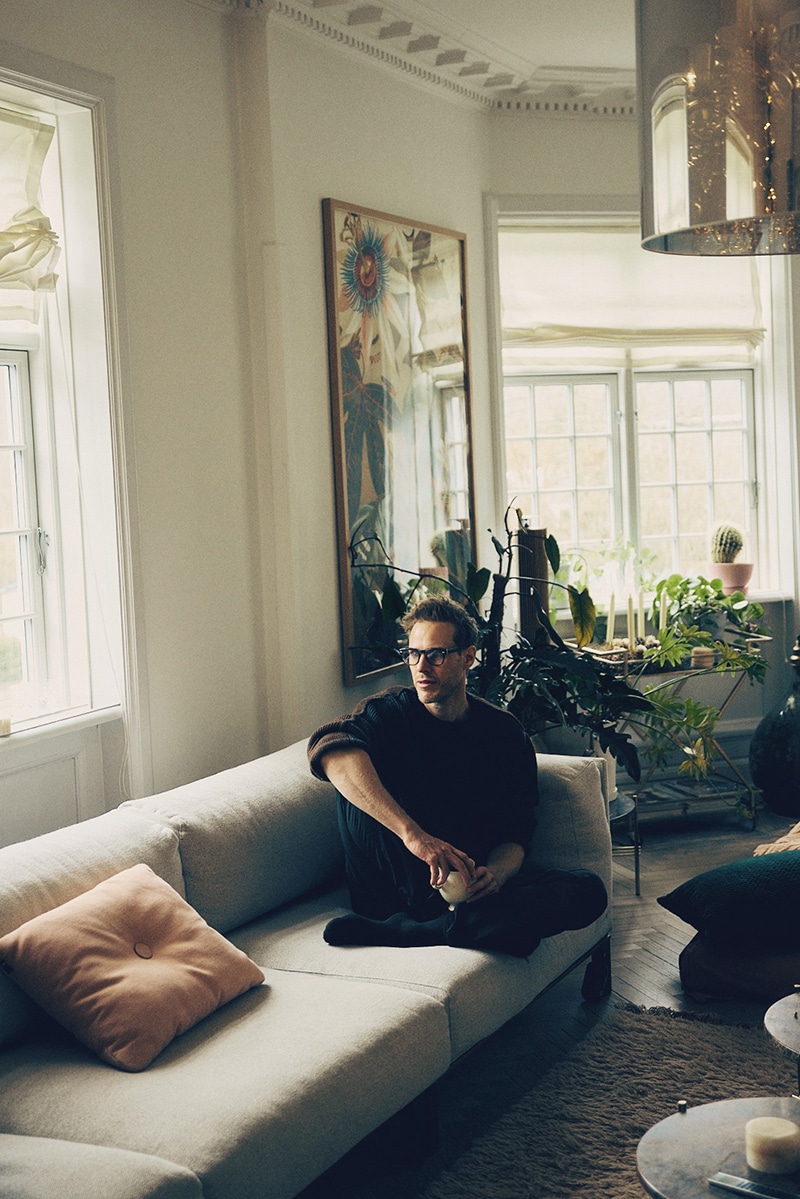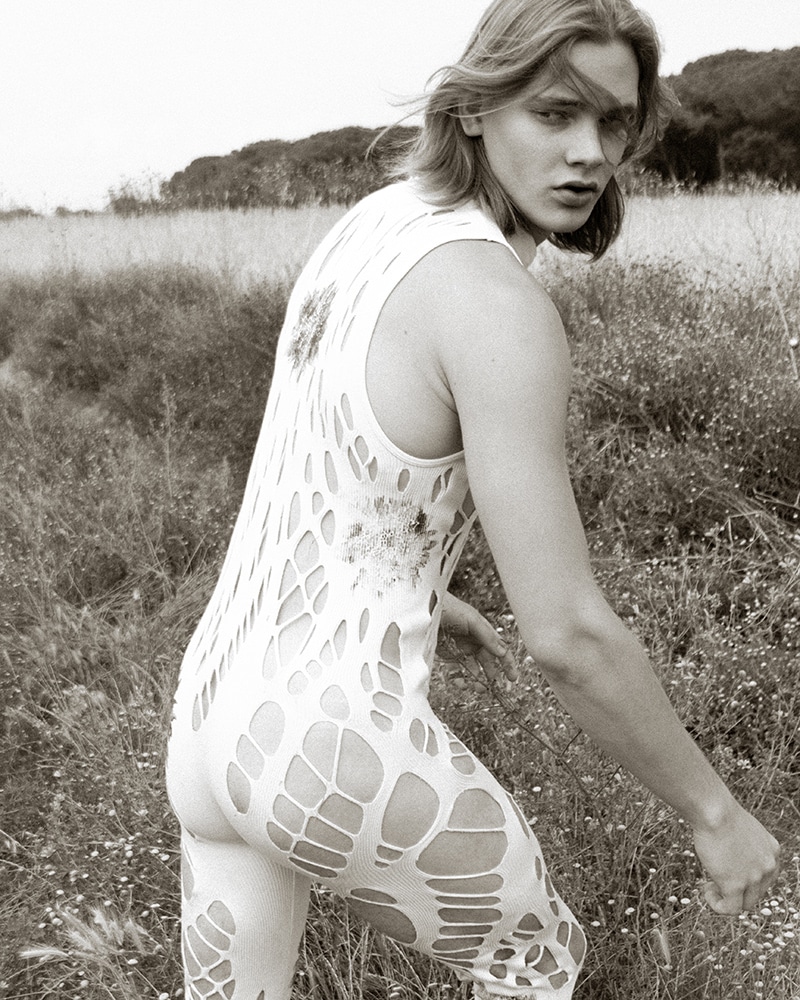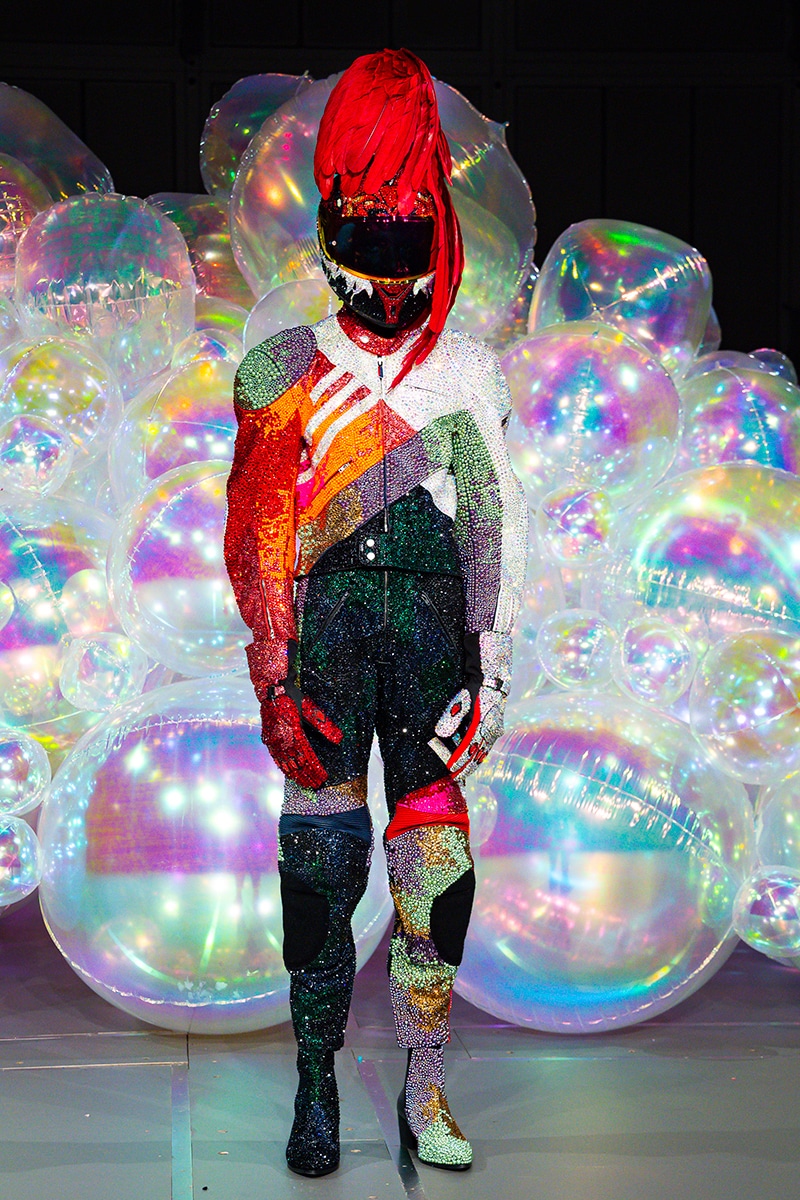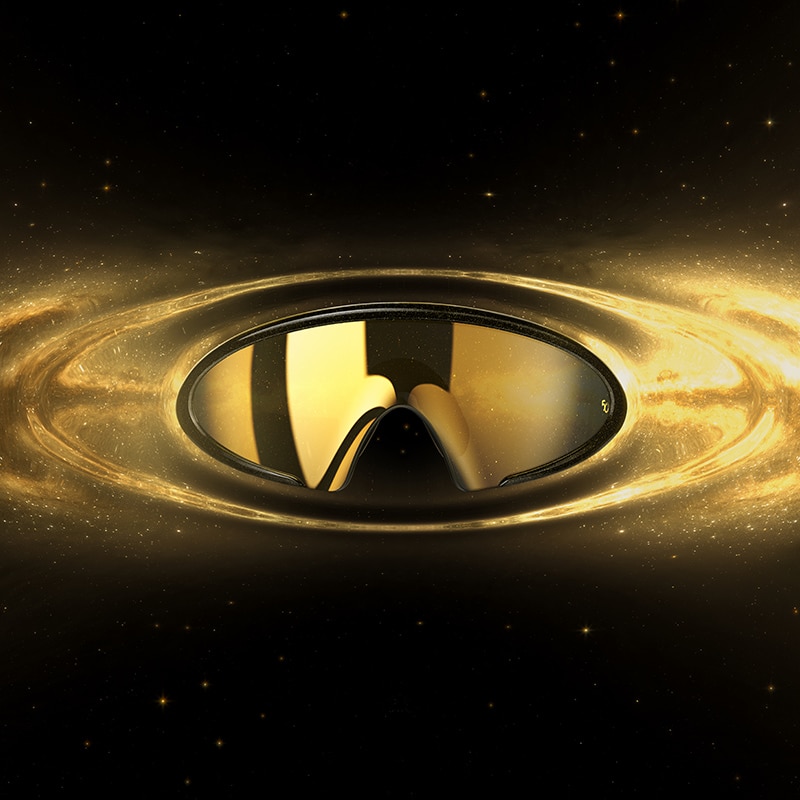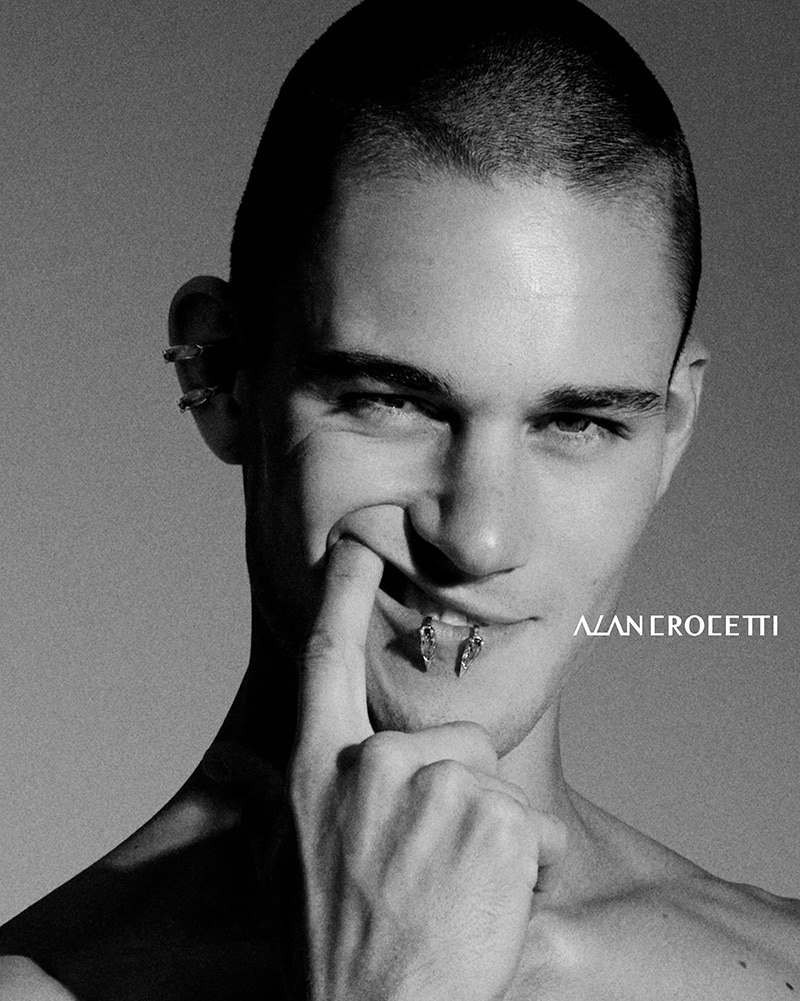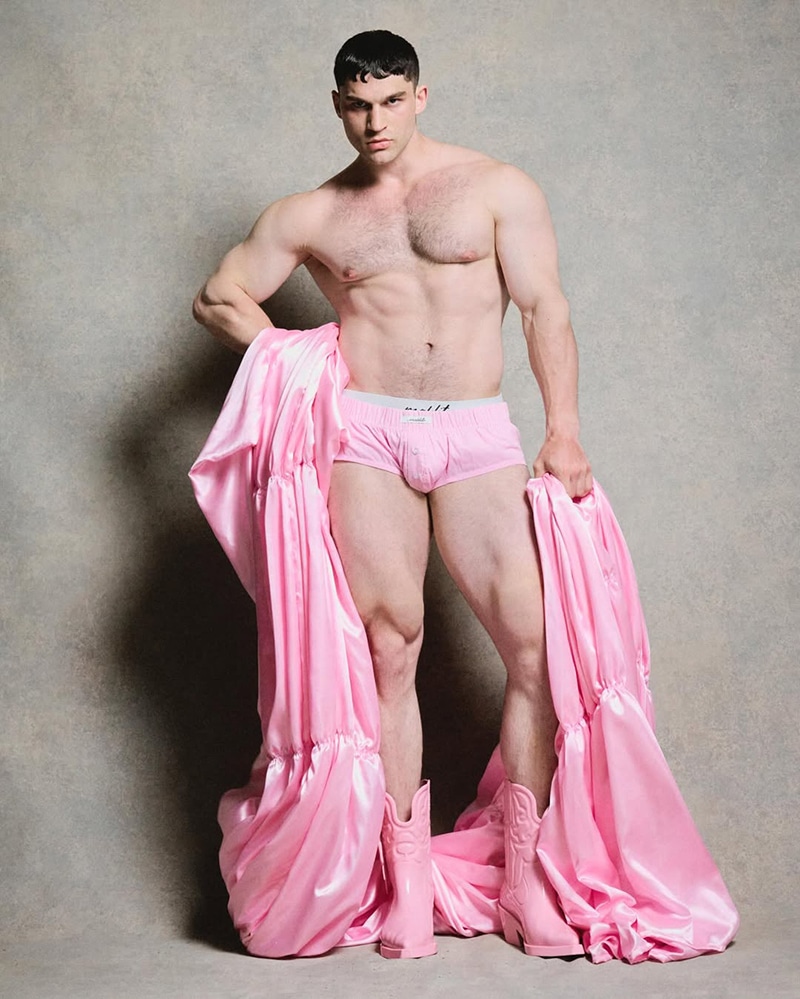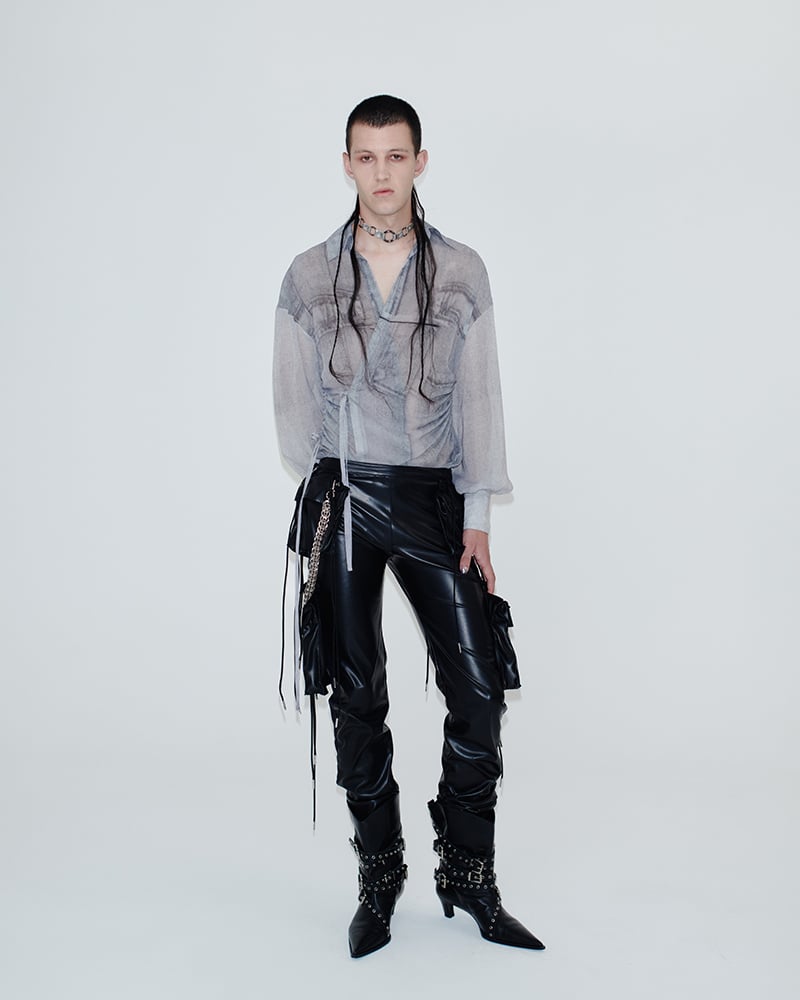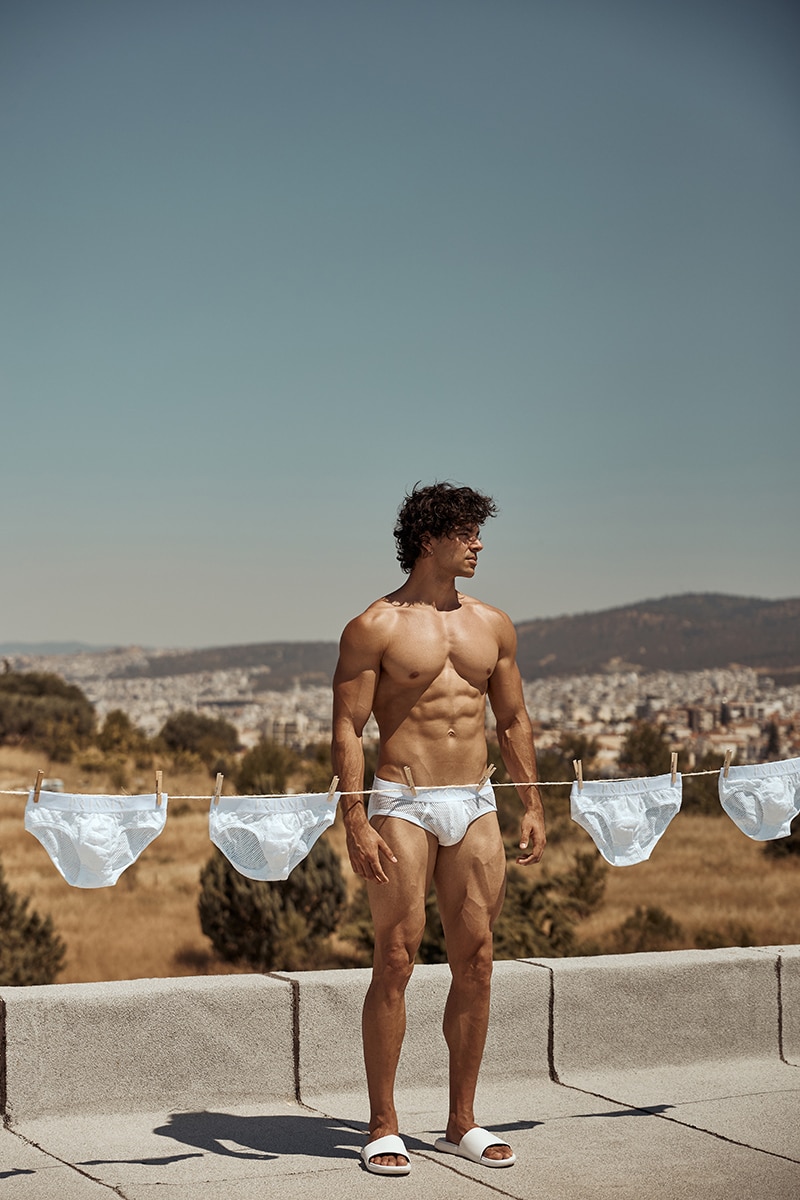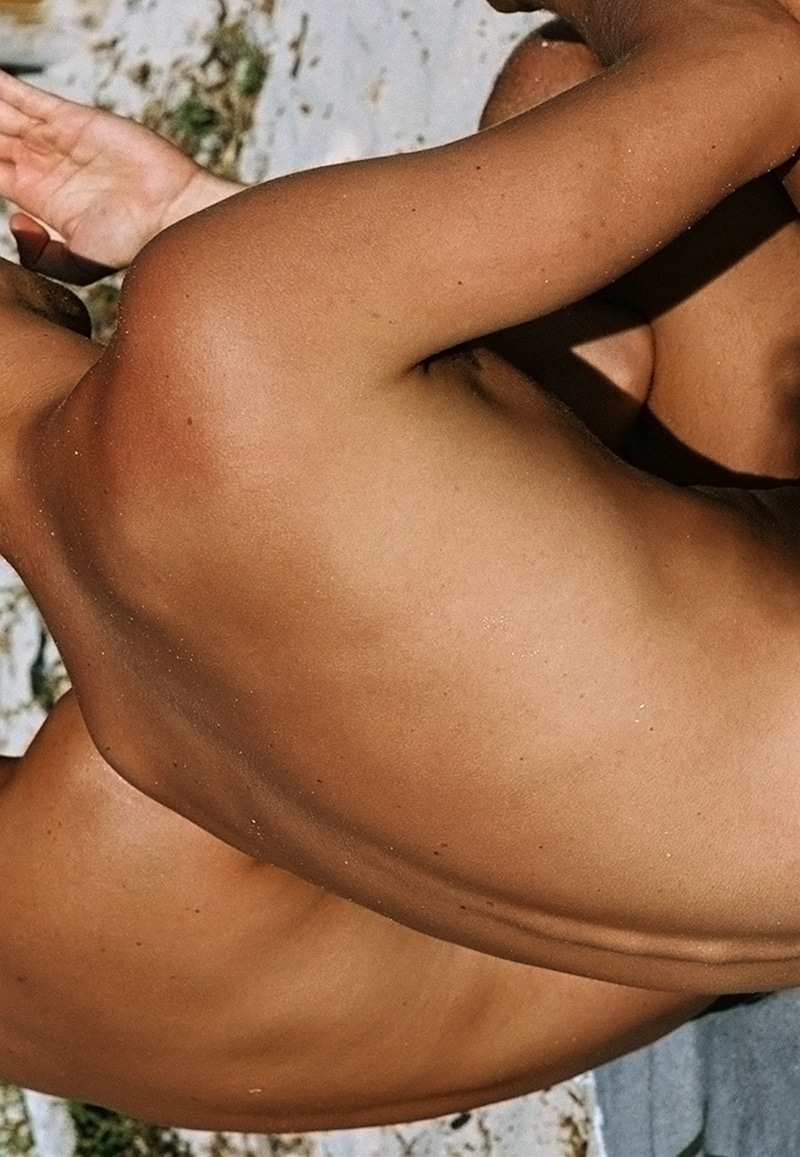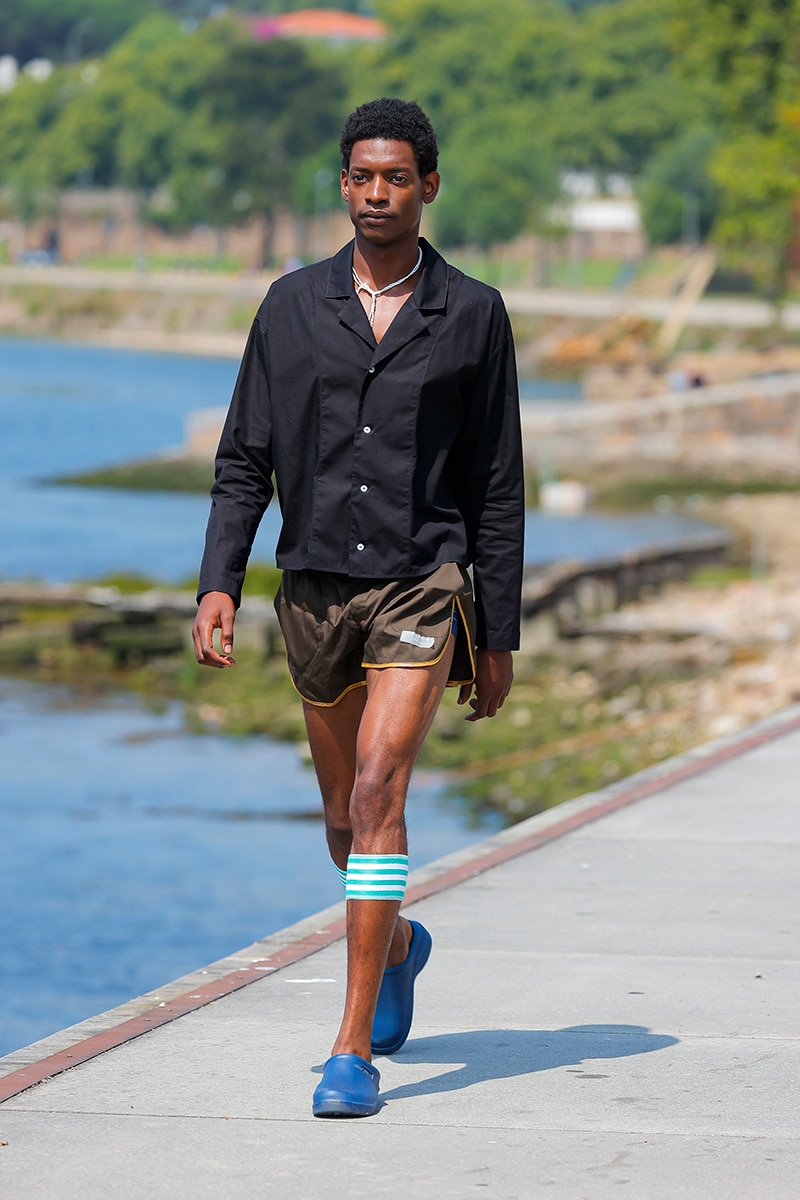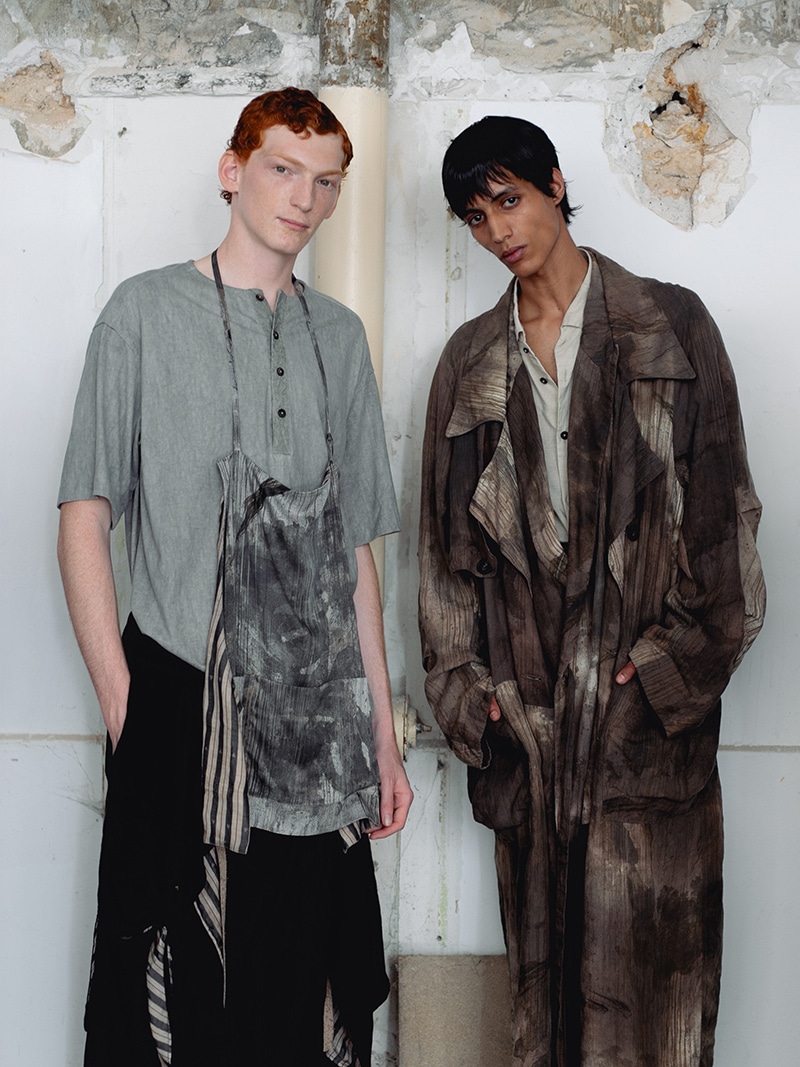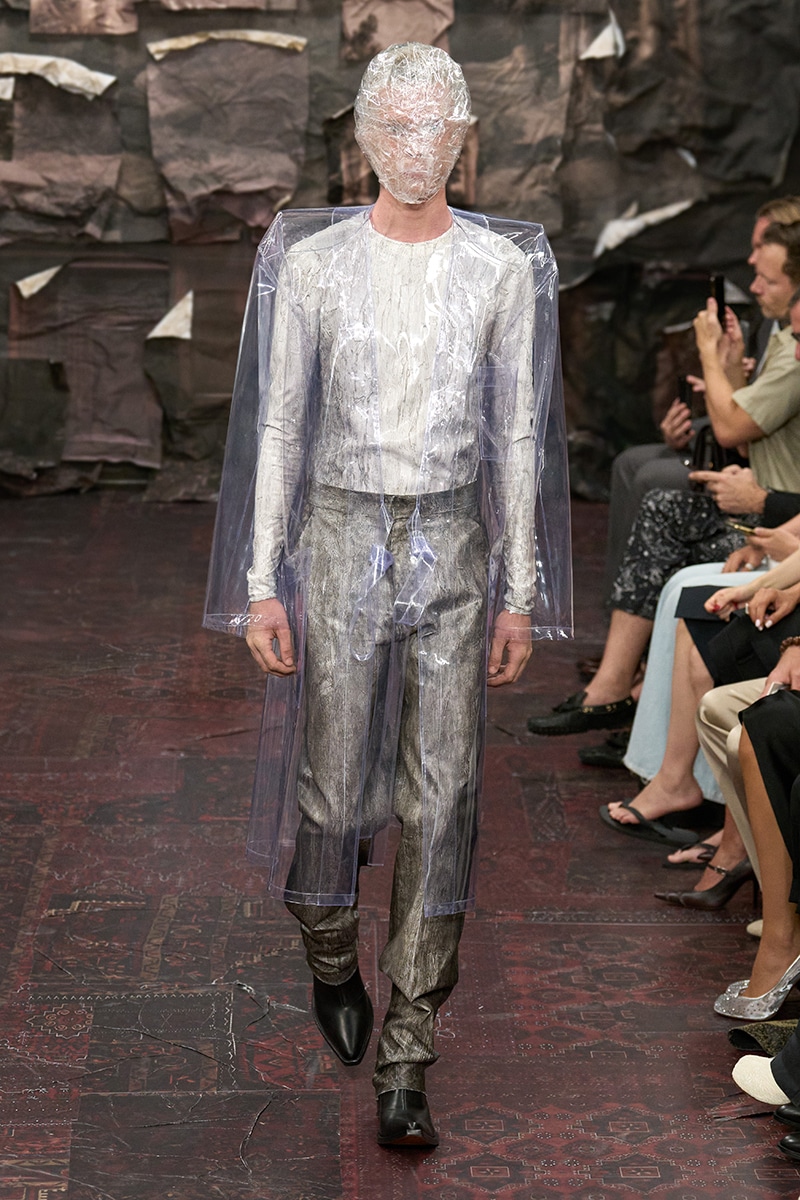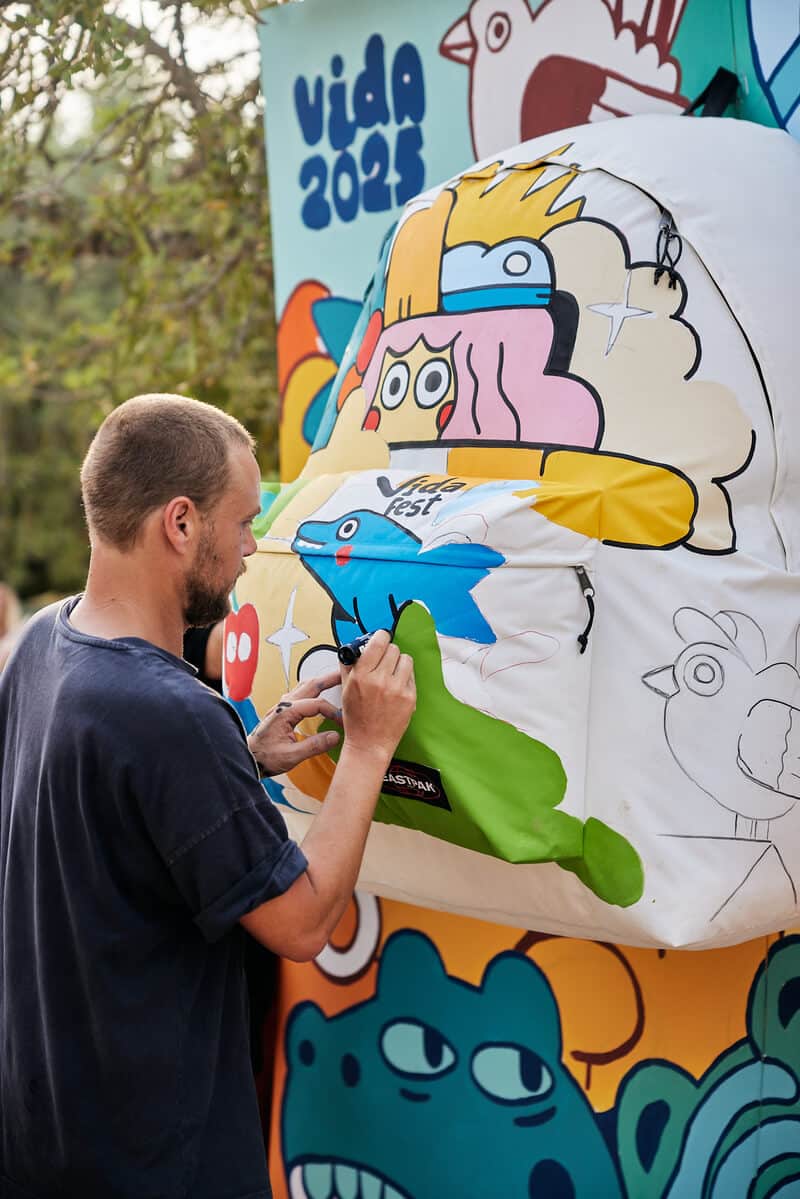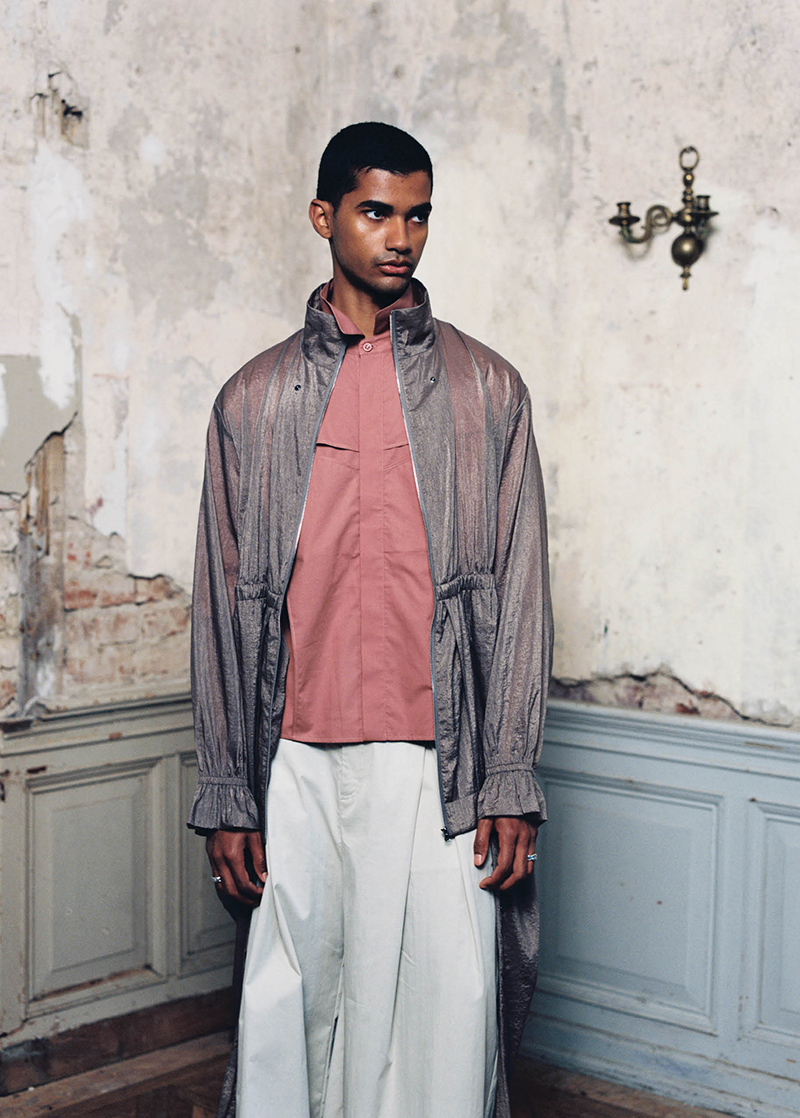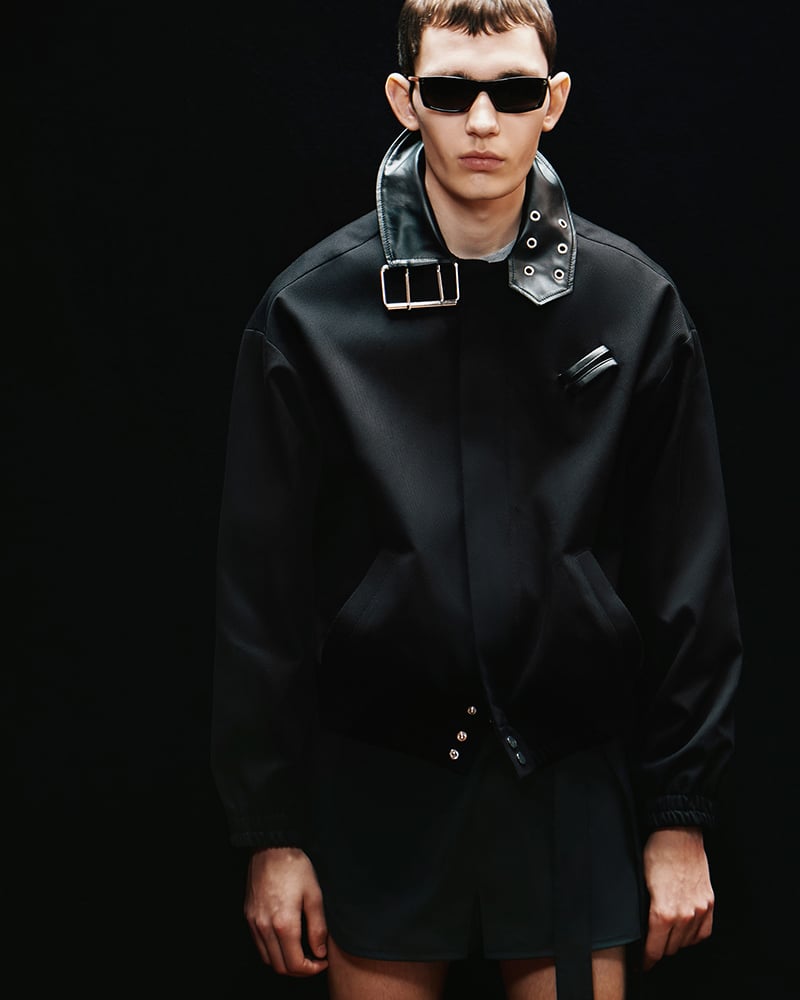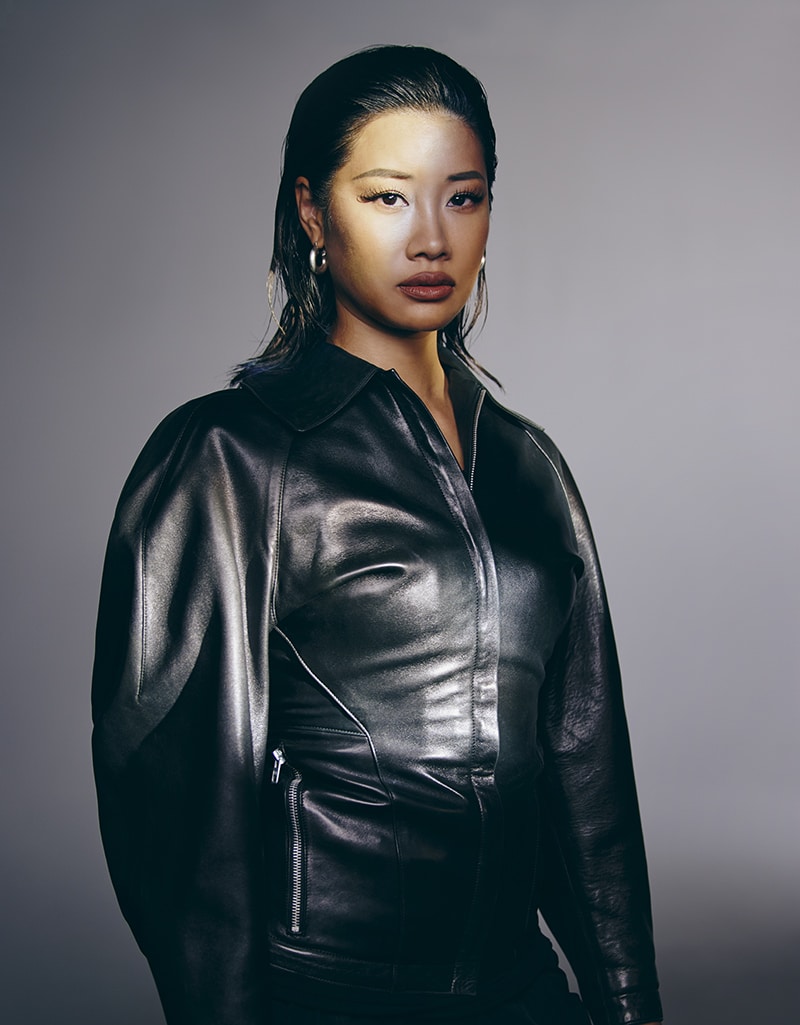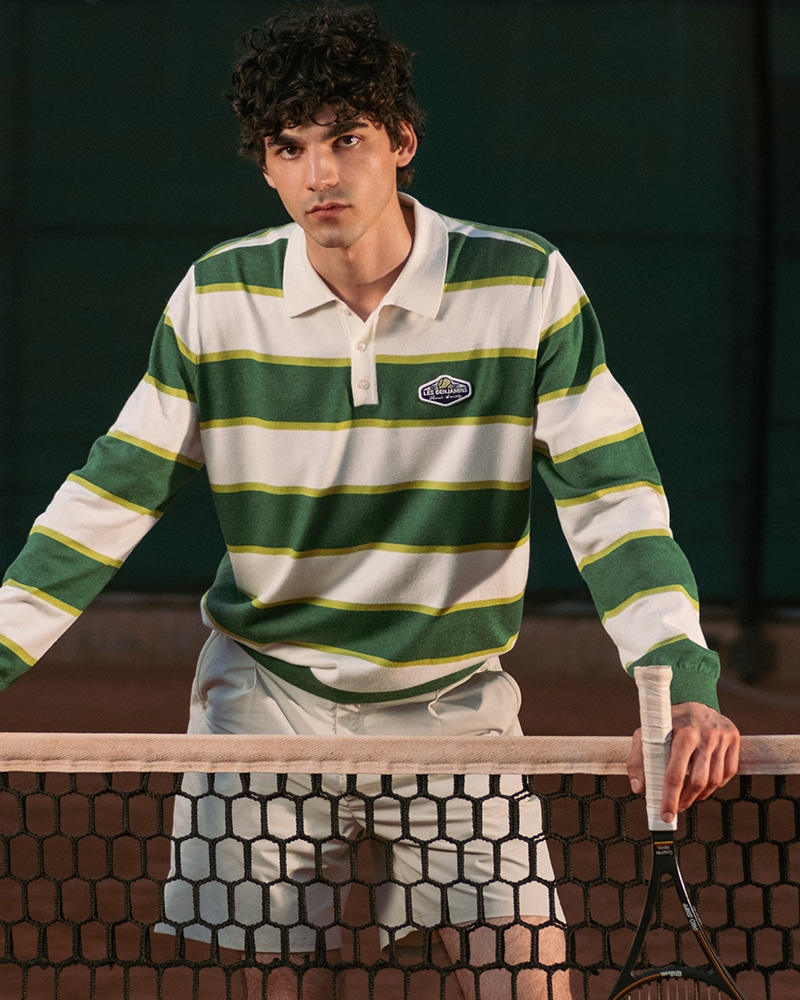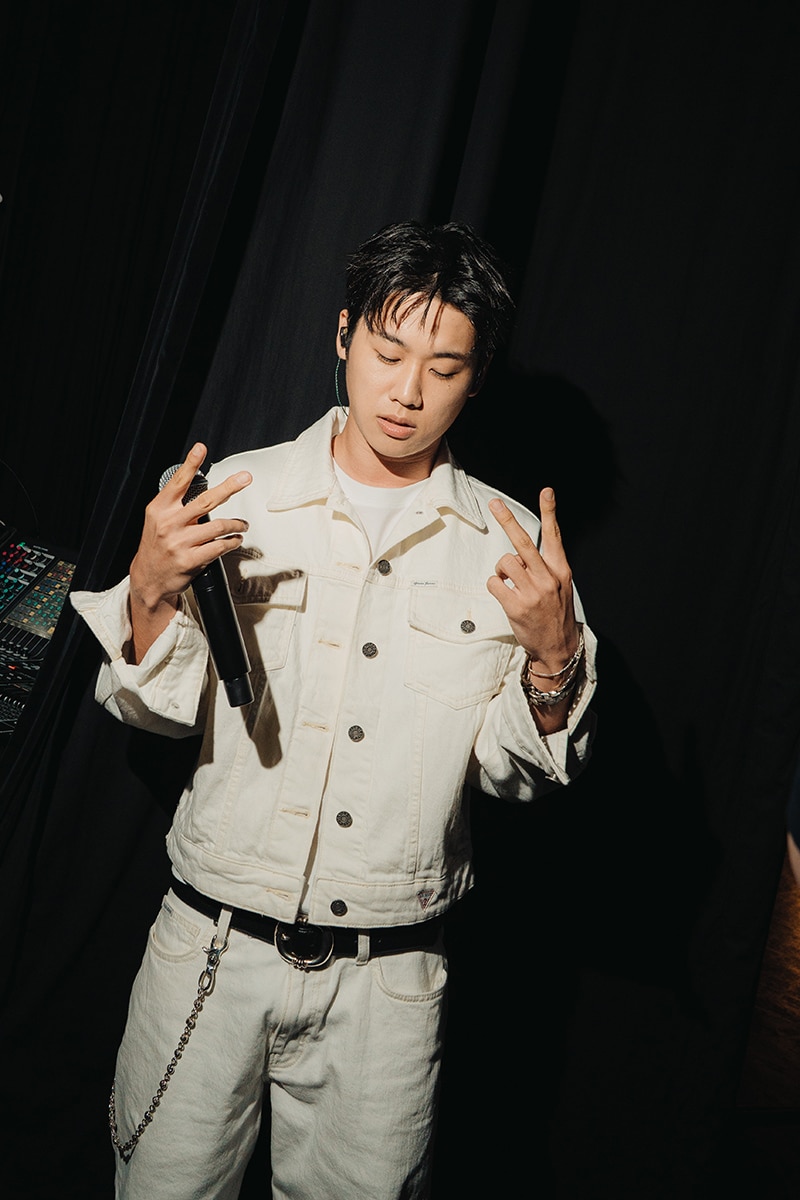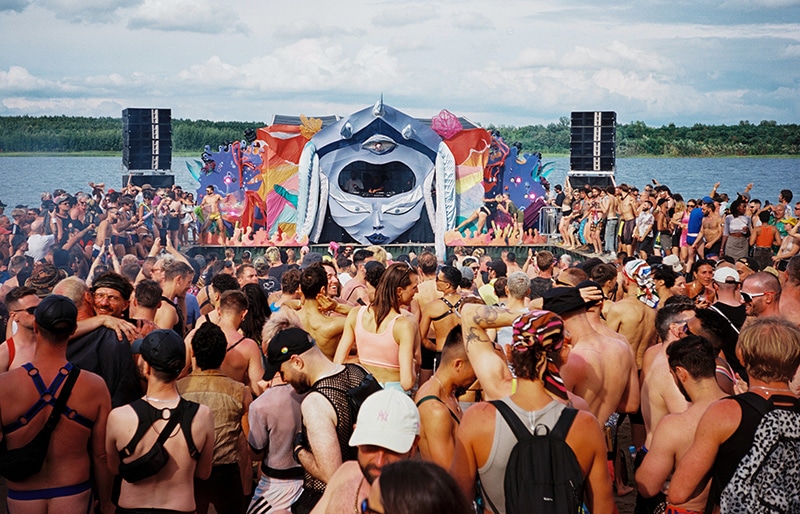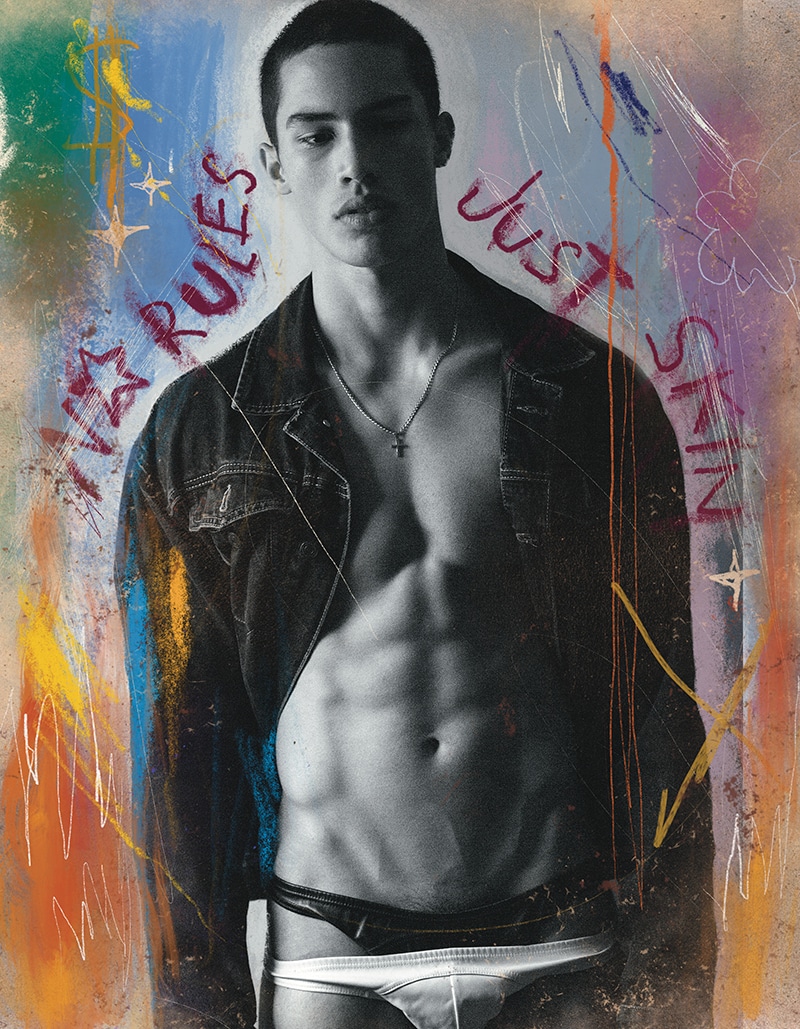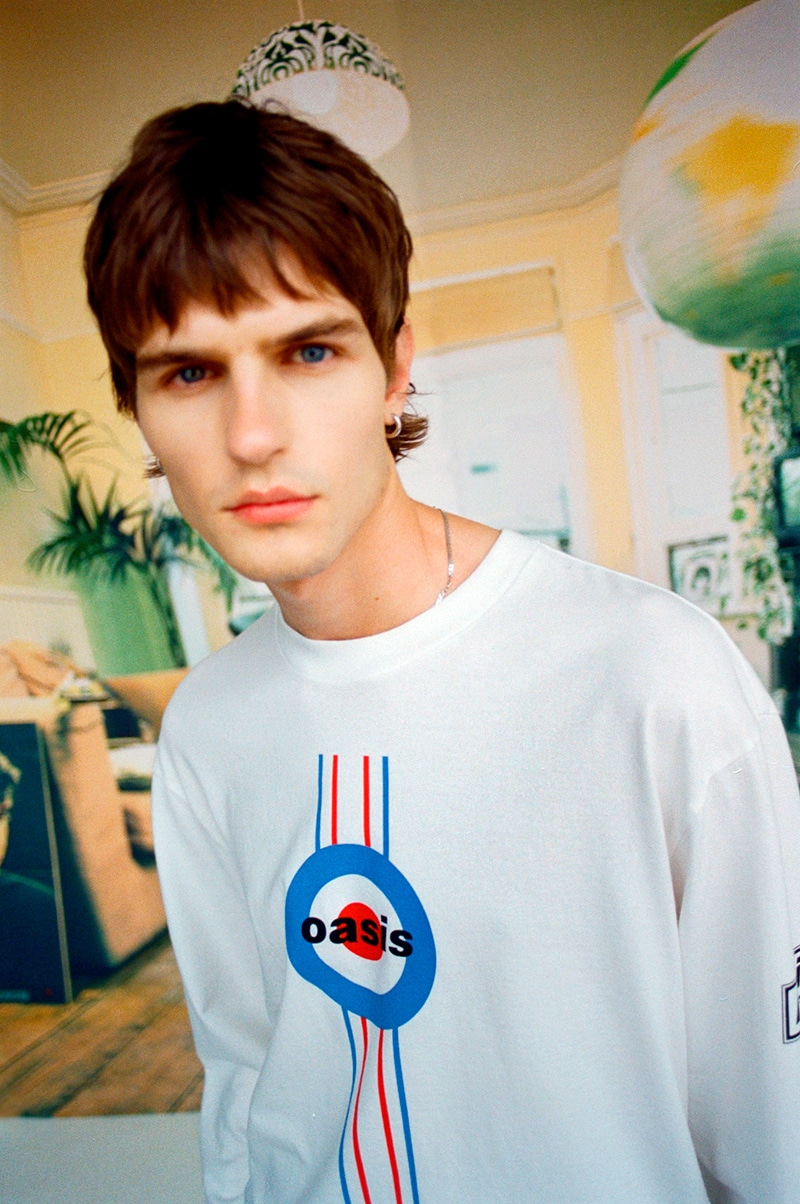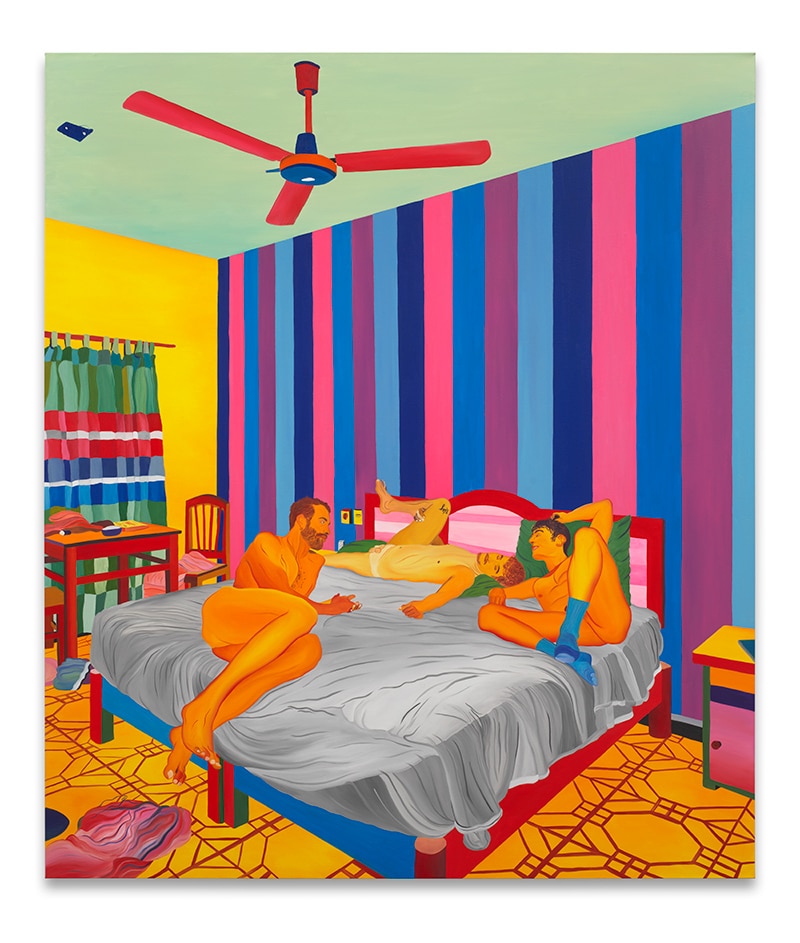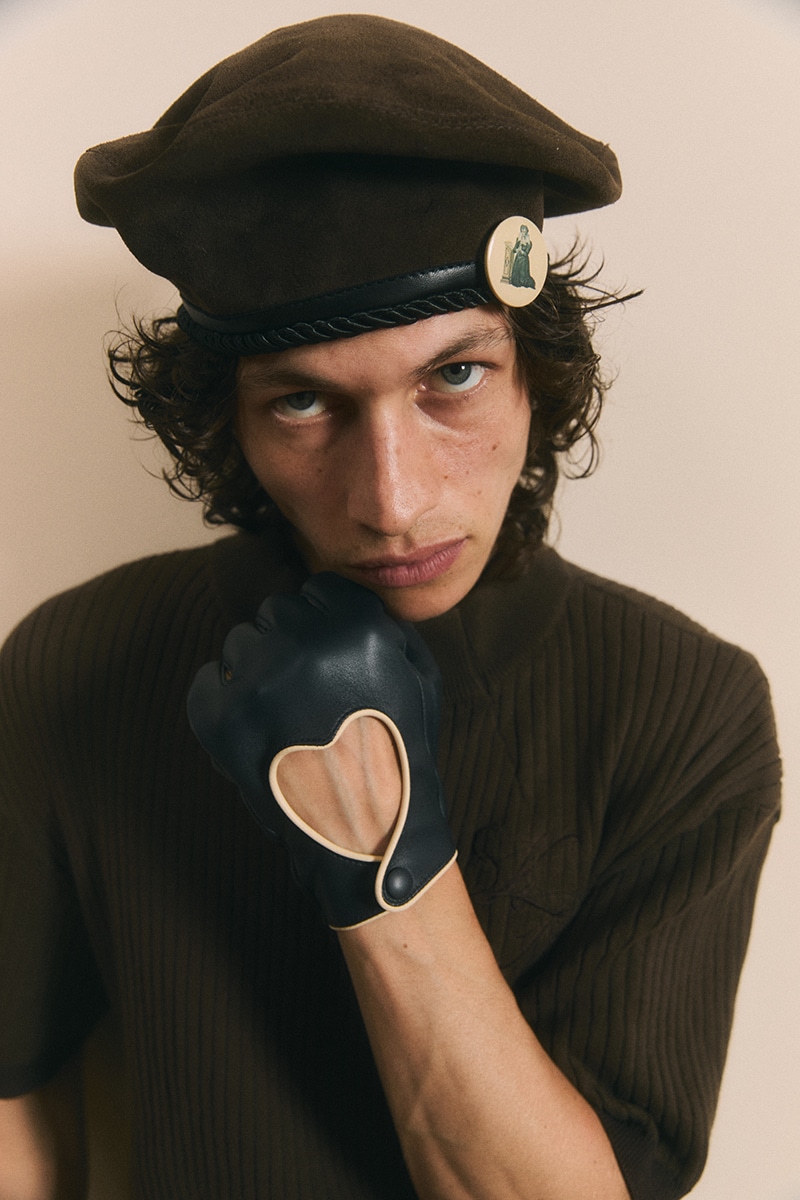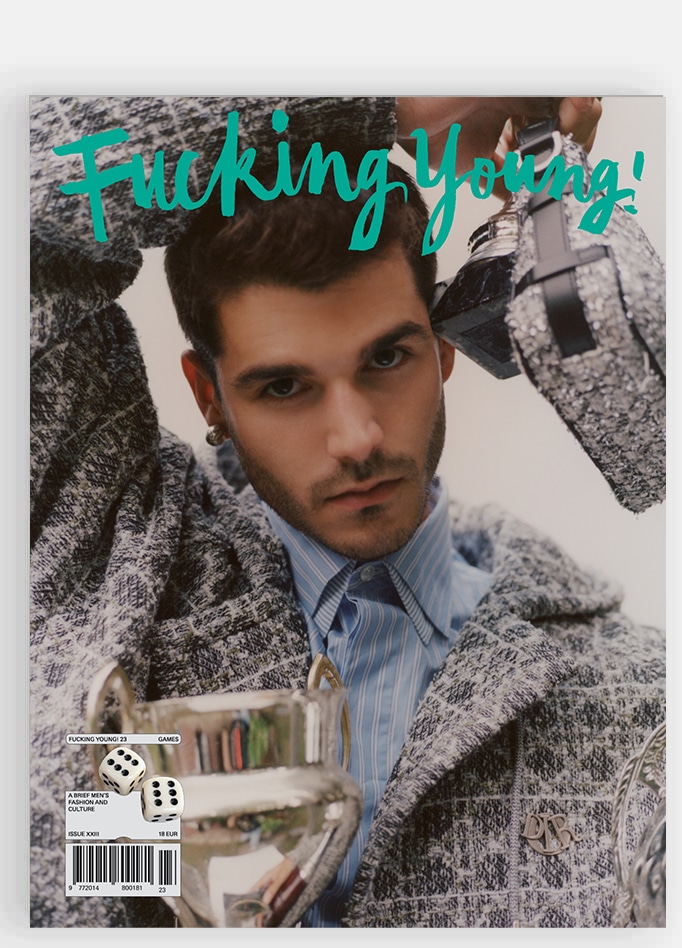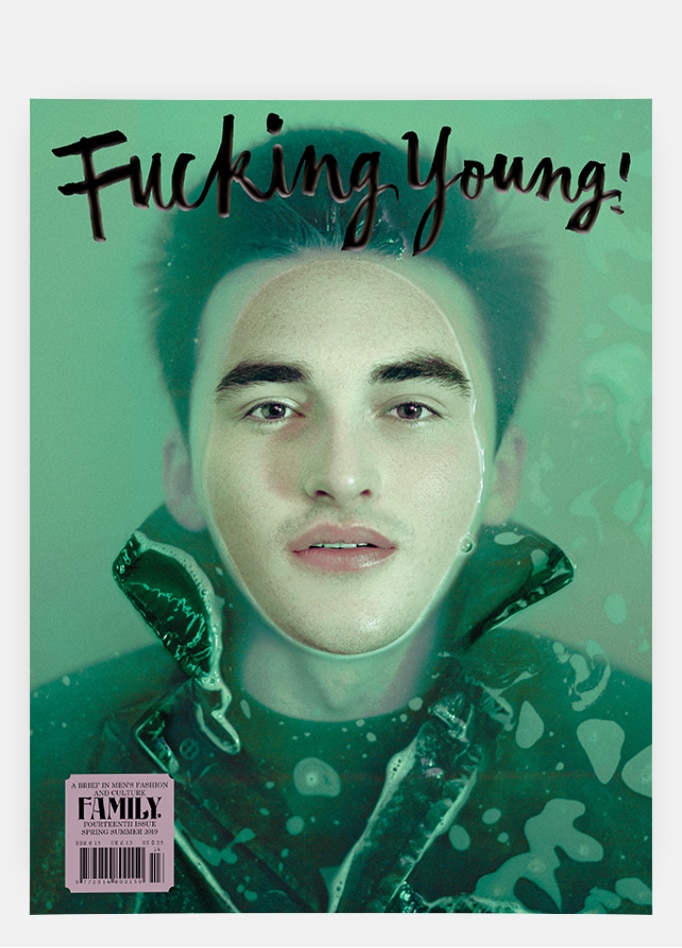“Not afraid to follow unconventional paths”
JOYCUT is a musical outpost, pioneering, always linked to an international identification code. Firmly involved in the fight against the climate crisis, over the years it has marked a profound path, joint and uniform, in the wake of sound research, to give voice to a violated nature, gradually refining an unmistakable stylistic sign, cinematic, instrumental, contemporary. In this sense, given this original inclination, in the wake of the school of Italian composers, it is now appreciated and recognized even outside the beautiful country. On the stage, two mirror batteries, one with a tribal matrix, the other deeply industrial, accompany an electronic station amidst liquidity, orchestral breaths, experimental figures and exploratory harmonic fabrics.
The ecological commitment and the complexity of the human soul: after nine years from the previous album and twelve from the album that brought them onto the international stage and to critical acclaim from the most demanding critics, JoyCut are back with “TheBluWave”, a blue wave that overwhelms us with experimental electronics and orchestral sounds to tell these difficult times. The work is the result of an uninterrupted artistic commitment that reveals, once again, the magmatic sound universe of a musical project always attentive to the environment and sustainability. Back in 2007, at the beginning, JoyCut were a small marvel of instrumental-cinematic electronics, destined to soon hit the stages of international festivals alongside cult bands such as Arcade Fire, The Chemical Brothers, The Cure. Today the group keeps its stylistic formula intact and in fact tacitly celebrates its longevity: “TheBluWave” is the result of a convincing and mature evolution and marks an important arrival point for JoyCut, to the point that Brian Eno has inserted a piece of the Album in the compilation “Earth / Percent” for the occasion of the world day of the planet.
The album is a path of inner investigation aimed at seeking the meaning of the human presence on Earth; it is a work of knowledge and almost divination that urges us to save the planet before it is too late, to ride the blue wave without being overwhelmed. “TheBluWave” features some tracks built on the contrast between dynamism and stillness, such as a collage of voices and noises of subdued waves, and others that are more linear, maintaining the sound balance in constant tension.
JoyCut are an expressive force of their musical manipulation that metaphorically approaches sounds, emotions and moods. As the power of the human soul is connected with the universe, we approached the band for an exclusive interview for Fucking Young:
How did you meet each other and when did you start playing music together?
Bologna is a university city. The cultural ferment is overwhelming. At the beginning of the 2000s, the outpost of record shops still existed. Always off the beaten path, always full. Real landmarks. In particular “Underground Records”. There, at the entrance to Via Malcontenti 11, an advertisement was posted on the wall. JOYCUT | Japanese Sunsets, Il Grande Torino, Bukowski, Gatti Randagi, The Guys Who Love Each Other are not there for Nobody … and other codes, categories, in search of elective affinities, without any specific reference to the recruitment of this or that musician. This is the first step. Federico’s first phone call. Then a series of meetings, tests, attempts, alternations, leading to consolidation. The first EP in 2003 “AFishCounter” and the first real Album in 2007 “TheVeryStrangeTaleOfMr.Man”. GhostTreesWhereToDisappear in 2011 and PiecesOfUsWereLeftOnTheGround in 2013.
Are you from a musical or artistic family?
My father plays music. He still plays in the same band he played in the 70s: The New Angels. At home, we listened to many records, while in the car the opportunity to discover new music was inevitable. When my father turned on the Organ, I could perceive – even before the sound – the unmistakable smell of the FARFISA F / 20 amplifier. Turning on that amplifier, bending over to find the right buttons, was a magical ritual. On the sly, when he was not there, I climbed into the seat and was ecstatic, motionless, watching those gray and black keys. Sometimes I was even allowed to play it. My mother wrote and still writes poetry. But only over time, thinking back, did I notice these particular peculiarities, their vivid sensitivity, too often suffocated by ordinary everyday life and work. Certainly, that context inevitably influenced my fascination, I had access to a selection of discs and books on many topics.
Your recent album release, TheBluWave, is a surprising comeback to the music scene. What is the message behind it that you want us to understand?
This work is a Work that has the gift of lightness. A light Mastodon. Look upwards. It offers a journey into the contemplation of Horror and at the same time pushes us to search for glimpses of light in the dark. It is a warning against surrender. An invitation to wonder. Wonder is still the most significant human experience, an active dynamism that accompanies you to “discover” hidden realities, to interpret the signs of the world, in a time where too many just love to be amazed, dumbfounded, passive in the face of events. TBW is the last chapter of a novel that doesn’t seem to have a happy ending. It is a call to awareness. It reminds us that we are not ours, we are not ours alone. That we belong to a more complex ecosystem. That we cannot set ourselves up as a single model. That multiplicity, in biodiversity, must be preserved. Almost as if we had to refer to the biological system to recover a decisive trust in human politics. BLU (written in Italian and not Blue) is a color that had to fight to emancipate itself, an exemplary figurative trait that had to find space, not without difficulty, to be considered on a par with the others. In his book “Blu. History of a color” Michel Pastoureau documents its slow but progressive turnaround. Today it is one of the favorite colors of most people, it has gained a significant “reversal”, it rises to a very powerful symbolic, artistic and literary value. Yet starting from the Neolithic through the ancient Greeks and Romans it has never been like this: BLUE has always had a strongly negative connotation. Today, the BLUE is to be considered a full-blown social determinism, with its alternating fortunes it represents the ever-changing portrait of a society, the human one, constantly committed to fixing and redefining its own scale of values.
BLUE is our planet, the declination for melancholy, the poetics of the abyss, salvation in the stars. It is a wave that undresses the beach, a metaphor to tell how much “purity” is necessary to tenderly caress the disaster in which we find ourselves.
In addition to TheBluWave… the album title continues :
TimesWhenSilenceIsAPoem_
TheIceHasMelted_
AndBleedingGlaciersFormOurTears_
A contemporary Haiku, as imperfect as this time_
A long title so that the quality of thought, the exercise of reflection, the invitation to critical thinking, the openness to complexity are restored to the human.
A lens to observe the criticality of the violated reality in which we are bewitched.
A look at the fragile, the least, the vulnerabilities.
A long title to annoy the algorithms of digital platforms. Unable to read it in its entirety. An Album released on Sunday against all market logic, on World Environment Day, because the precondition for existence is existence itself, it is the delicacy of being human, beyond what we “count” in quantitative terms.
We believe that this work can significantly offer a functional detachment from horror, telling it and slamming it on the front page, right into the belly of the whale. People need to dive into the ecstasy of the moment, to immerse themselves in their own BLU[E].
When was that first “Oh shit” moment when you realized that music was going to pay off for you?
We are a totally and fiercely independent band. No structure behind it. At a certain point, not being able to be a “magnet that attracts” we decided to be a “hammer that beats”. We would just play. No social media. No press office. Just play. And so it has been for the past six years. Only interrupted, at the best moment, by the pandemic. Anyway the first “Oh” !!! was consciously expressed during the PiecesOfUS Tour. 44 concerts in 44 days around the United States. 18,000 Km. 10 hours a day by van. Katia [our manager] started getting calls upon calls. At the hotel, at breakfast, we were updated on what was happening. “We’ re invited to this festival, to this other one, in Europe, in Japan, in China …”. We felt fulfilled. Lucky. We believed it was really possible. It was a wonderful stimulus.
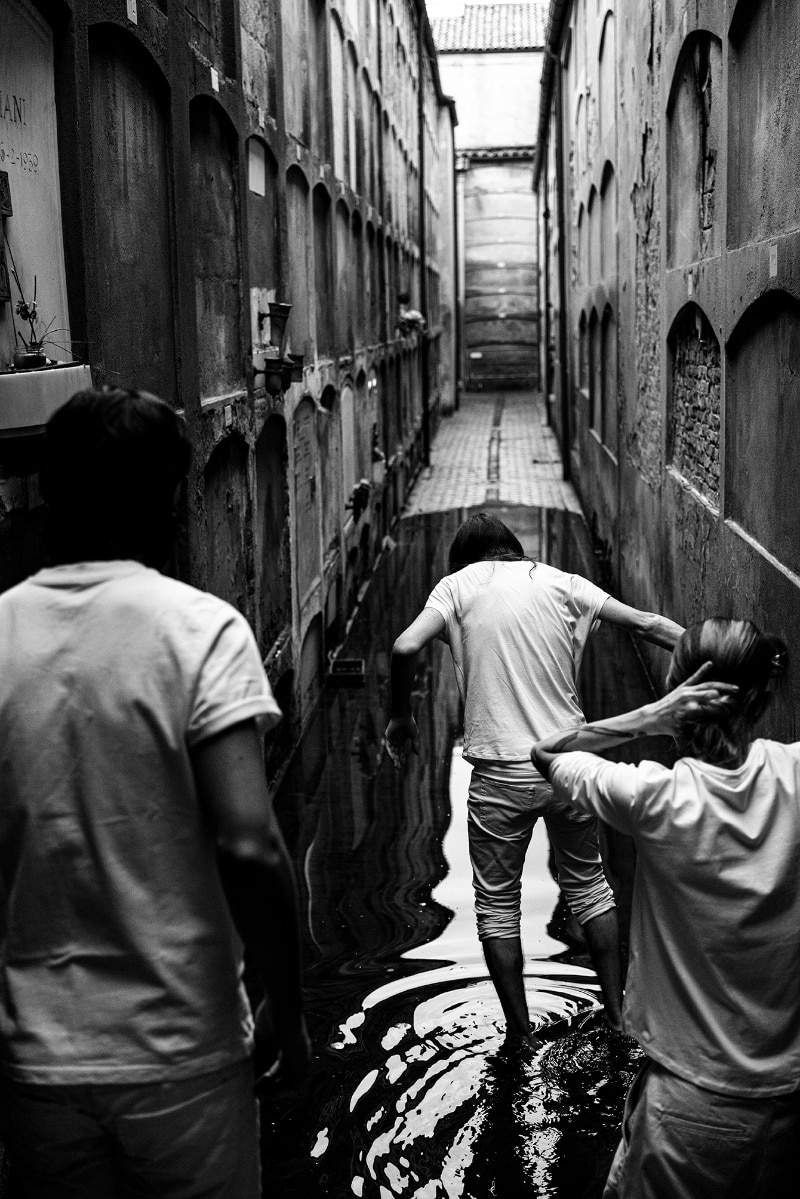
Tell us more about the typical creative process in making music together.
The creative process is constantly in circulation. And even when there are certain “blocks”, the very nature of our expressiveness treasures them, uses them to work on identifying new ways, searching for sounds and voices up to the investigative effort, which is intense. We intervene in opening up to dynamic solutions, always giving life to a pavement of narrative experience. It is almost always a job that I complete alone, in retreat and solitude. I always have in mind who will have to play what, and, in a certain sense, the writing takes this into account, although each of our albums tends to surpass the previous one, preferring solutions outside the already trodden comfort zones.
TBW is a very dilated, extended album, less rhythmic if you think about the use that in JOYCUT usually makes of the two drums, but full of passages and beating weaves, it is very powerful, it leaves room for other languages that are not necessarily classic beats, there are sudden interventions which tear the canvas. After making the textures, the arrangements, having been mixed as if the work was final, we usually find ourselves in a way in which those ideas become part of our “feeling”, so we play them together, we violate them, we carry them around “live” even if still unpublished, we model them until they become “memory for the body”. So we record them. And each instrument acquires its place, finally, taking advantage, in the studio, of time and space, of the encounters, of the listenings, of the exchange with all the other fellow travelers, musicians and not. Exceptional creatures participate in this work such as Mauro Malavasi, Vince Pastano, Julian Ziklus, Leo Roche, Benoit Perret, Rodrigo D’Erasmo, Come Ordas, Antonello Mauro. In addition, as a special mention, I really have to say “Thank You” to Paul Corkett for his support throughout these last three difficult years_ Sound is our obsession and the creative prologue always leads us there. This purely analog album was designed to last, so that in twenty years it can still sound contemporary.
What was the most challenging part for you during the pandemic?
In Italy, especially in the north of the country, the experience was tragic. Ours was a real lockdown. More than two months locked in the house without being able to see the light. In the oblivion of disinformation. Between the absence of masks and conflicting media warnings. In the midst of death. With daily bulletins listened to on the radio of endless fatalities, and speeches to the broadcasting networks by the prime minister of the time calling for people to make herculean efforts to keep the country safe. Small businesses collapsing. A paralyzed country. Nurses, doctors and teachers, together with the transporters of basic necessities [so that the supermarkets were at least supplied], applauded like heroes. The music scene was on its knees. No subsidies for the invisible. The technicians and the workers, intermittent workers, with their backs to the wall. Our system has leaked water everywhere and has shown all its limits. Small music trade unions were born. There was an immense and moving solidarity. A great show of the strength of the citizens. We, as JOYCUT, held a concert at the Teatro Valli in Reggio Emilia on 1 January 2021. A live stream called “1 + 1 | ForTheOnesWhoDreamOfBetterWorlds” to support venues in serious trouble, some of which were closing down. We involved them in the project, asking them to open up a direct sales channel for coupons and they would collect 100% from those proceeds. Some managed to pay a few bills, some to hold on for an extra week. For us, playing in that empty theater, a symbol of the suspended supply chain, a simulacrum of banned and forgotten art, was heartbreaking. But necessary.
Today we have collected that experience in a book and a DVD. We will continue to support those Clubs and will donate part of the proceeds to them.
The pandemic took my dear 100-year-old grandfather away. The human being from whom I took my name and derived values and strength. LISANTROPE is dedicated to him, a sung track present in TBW. A heritage of humanity that would not have died otherwise. He was healthy and lucid. Many justify and accept the disappearance of so many elderly people, forgetting that they are our cultural fathers, the founders of our deepest values. Despite their age, many of them would still have had to say, to tell, to write. Age is an ephemeral pretext to accept death.
We think your message for our Earth Planet is very powerful. It’s also an invitation for all of us to be more conscious about the fact that there is no Planet B. Can you tell us why spreading this message through music is so important and what actions can be done for a more conscious society?
You know, we can no longer give in to the cordial deception perpetrated in the last century. That is to wait for the companies, all, all together, to acquire awareness. This process, albeit inalienable, plays into the game of those who ride the catastrophe to plan and determine the new horizons of humanity. By exploiting traditional consumption patterns down to the last penny and delaying the conversion of production processes until the last second. The ecological transition is very slow and would not need to be accompanied by a digital transition, indeed, the two categories are an oxymoron. It is a further deception to keep us there, with our mouths open to await the change. We need to change the narrative paradigm. First of all we must start screaming that this is a “human” and not a climatic crisis. Only if we read the word “human” associated with crisis can we perhaps wake up. It is a struggle that sees language at its center.
Globalization has failed. Resources have run out. The exponential growth of populations is there for all to see. Economic imbalances and inequalities have dependant the distance can’t be made up. When will we understand that these are the effects of human management?
We can put into practice, and we certainly must, all the good rules of eco-friendly behavior but it is not enough. Just as it is not enough to delegate to activists. Donate a penny to this or that association. The dialectic is the only form of understanding the real, it is true, it consists of time, but this time has already been used to reach conclusions, its apodictic response, after careful analysis, is clear, the facts are clear, we must stop this world model.
We certainly cannot expect that other countries, which we have previously oppressed, colonized, usurped, will stop right now that they are registering their maximum growth, after the West has made itself master of the world for 400 years, regardless of the consequences. Therefore the negotiations have stalled and progress is zero in relation to time, the variable of which is decisive.
In any case, being aware of the state of affairs is certainly the most profound step, capable of revolutionizing the individual’s mindset, projecting it into an unprecedented adaptive vision. We must remain “optimistic” for two reasons: -the first, because it is only by seeking new solutions that we could probably face new problems; -the second, because, however it goes, the biological system will survive us. Assuming that the nuclear war scenarios, cyberwar, satellite pollution, stellar debris, do not represent an even more apocalyptic threat than one can foresee. And, all in all, human calculations, their falsifications, cannot be trusted very much.
Do you ever find yourself unable to express your creativity to the fullest? What kinds of things inhibit you?
Fortunately, our key to expressiveness has always been the search for the limit. To surrender to it. Therefore it is precisely the limit that becomes narration. It is inadequacy that guides us towards our stylistic code. The search for “fullness”, for expressive completeness is an absolute error for us, to be avoided. Something must always be missing. It is in the absence that we feel at ease. Personally, I notice when the creative process has come to an end. I hear a “sprite” tell me “this is it”. And it is almost always when you realize that you could level up a little more to the point of being able to exceed the 100 mark and overflow into 101, to the point of losing every proportion so painstakingly conquered. Instead, I always speak for myself, the expressive inability I feel strongly on me when I’m alone with the instrument. Whether it’s piano or guitar, I don’t have the proper preparation to allow it to shine and free itself, exploiting its full potential. So it inhibits me, and this is paradoxical when we think of music, playing with strangers. I need to feel “understood” in order to share this “nakedness”. On the other hand, this leads me to use the tools in general in a very personal way. Referring more often to sound. Especially in the compositional, exploratory phase, I manage to get the best out of it.
Is there a particular place where you feel most creative?
At home. Alone. I write everywhere. Traveling. In van. At the airport. In other cities. In other countries. At my parents’ house, I remember writing all GhostTreesWhereToDisappear in about ten days in my childhood bedroom. But my favorite place is my home. Probably because I am surrounded by my citation fields, I feel safe, and calm. Lately, I’ve been spending a lot more time in the studio and that place is becoming like a way of entering into peace and silence, perfect for opening up to creativity.
What’s your process for dealing with your feelings during a live performance?
We don’t talk much. We are very respectful of the time we are given, of the moment we are about to live, of the profound importance that is eviscerated from that ritual and how much that “feeling” nourishes and restores us. We enter our own dimension and serve the music. Before going on stage, each of us finds a moment for ourselves. Then they call us, we hug each other, we hold each other like rugby players for a while, without saying anything. And then you go. During the performance we look for each other, there are routines that are part of the performance itself, looks, smiles, tensions, and movements that accompany us and reassure us. Only afterward, only after having talked a lot, about how things went, how we felt, the critical issues, about any surprises, does it become a great party.
What would you change in the music industry in order to improve more independent artists/bands?
If you add “Industry” to Music, there is little you can do or much to complain about. It is a system with precise rules that undoubtedly still holds and does not have time to dwell on plans other than profit at all costs. Sometimes we expose ourselves and the ethical sphere stands out, the battles for rights take on strength and identity and most of the time the artists are behind it, not the industry. In any case, if you are into it, you know the rules of the game and nothing distinguishes the music industry from that of Food, Cars, Fashion, Sports. Take or leave. It is a system that always falls on its feet, which allows great products to survive eternally. You are worth it if you make it. That’s all. Peace made. Languages, eras, fashions, styles can change, but what goes on is only those who determine and move large numbers, satisfy the market and create profit, not necessarily value [which is another thing].
Of course there are exceptions and they are “exceptions” because the content is commendable in artistic terms, but the fact remains that the role they play in the mechanism is relevant, kept alive, in any case, because it generates massive revenues. And it is obvious that in quantity, inevitably, there is also great quality. If we want, the numbers can also be added by putting together small amounts of users which when multiplied by 10, 100, or 1000 can represent an interest in revenue such as to justify a presence in the apparatus. This explains the resistance of projects that “apparently” do not contribute to the big game.
On the other hand, there is an infinite world of independent counter-power. It will never be able to rise to the role of competitor but it certainly has the ambition to offer the end user the same quality, greater freedom of action, and often the surprise, in overturning the classic paradigms. If we think of big festivals, they work like UltraMarket. The usual agencies distribute seasonal products on the shelf. A continuous franchise. We would wonder why it works so perpetually. The answer is clear and distinct from them, “the big hands”, the big industrialists: “it is the public who wants it”. We forget that the center of everything is the music, the artist, his vulnerability, his creative torment. You cannot ask a hen to lay the egg on command. Always the same. Repetitively. Better than the last. Bigger. More nutritious. Without respecting the natural cycle, the time of flowering. It is an abomination. It is in fact an industry. An alienating factory. The death of art.
An example of how the “industry” can learn from artists? Be more receptive to sustainable and qualitative models? I want to remember Robert Smith’s Meltdown. Festival which was named as the best festival in the world. Sold Out record. A stellar line-up that did not take into account the “releases of the moment”. Among the bands invited, some hadn’t released albums for decades, some had split up, some forgotten, some unknown. As so many were so seminal and decisive for the history of music that they certainly would not have needed to promote a new album in order to have the opportunity to play live. Here you are. An enlightening experience that should be taken into consideration. Which should give back to all the small, medium and large promoters of the planet the passion to create eternal “dimensions”, to discover artists, to have the courage to educate the public, to take risks, to return to love sound.
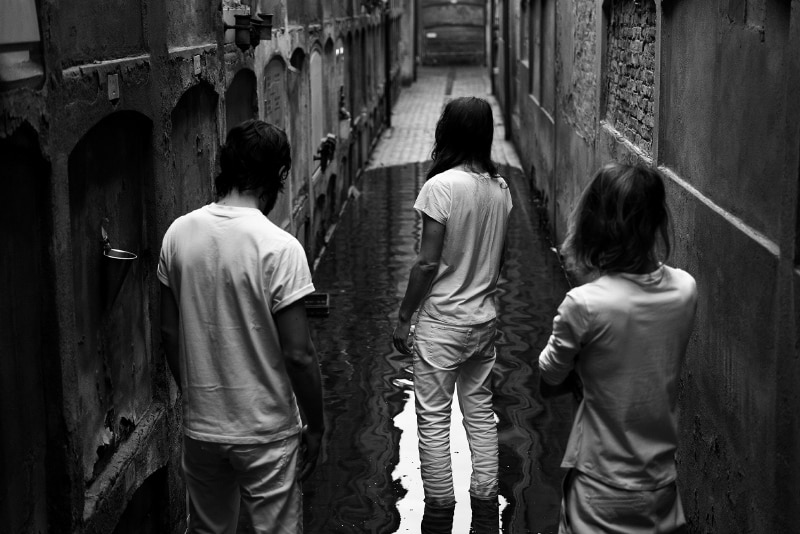
After the last album release, what are your next plans?
TBW has been released and we would like to testify in front of people. Carry out the sound installation “i n t o t h e B L U” dedicated to it. Find a way to make this work useful for others too, which has a real effect. We are making a BLUFOREST and every sale of the album we would like to turn into a planted tree. We want to perform it in its entirety as if it were the First Work. Present it at all latitudes. And then, definitely let it go. Over the years we have made a Documentary, which has participated in Film Festivals, in Canada, Wales, England, United States, today on Sky Arte in Italy, which still needs to be shown. The same is true for “1 + 1”, the book + DVD. And then there is a new sound matrix already made, but we have to wait until THEBLUWAVE has run its course and I hope it will last as long as possible.
Do you have any hobbies or interests outside of music?
We like to read, see films, but this is known to fall into music and traces of it can be found. Lately, we have enjoyed creating our own THEBLUW IPA beer. Gael loves Kendo, he practices it. The Shinai [wooden sword used for practice] was used as an instrument in the Album, it is present, as if it were a percussive string, in BLUTOKYO. Katia runs and is a very faithful RunningPunks! I still play football, 11-a-side, it is a great passion. My team ASD BACARO 1996 has been together for a lifetime. Playing is my healthy way to vent anger, scream, hug, and to feel the adrenaline, the smell the grass, and end up with your knees always hurt, covered in mud, and be a part of a true heterogeneous community united by a spirit of unique identity.
What is your favorite place on Earth you would love to go for a while and make music?
I am fascinated by the cold and extreme landscapes on the sea. I need a lot of light. Lots of nature. I want to be overwhelmed by the sublime. Romantically. Sometimes the places you can find yourself are the ones you really haven’t been to yet.
A letter to your FUTURE self. What would you write?
My sweet and beloved Pasquale.
Time is only a Dimension towards consumption.
We have always known this.
Now, beyond where you are …
Keep Becoming just yourself.
Never stop.
Embrace the pain and don’t be afraid.
Be thirsty. All the time!
Surrender if necessary, but only before your principles.
Look at our photo.
Don’t betray that boy.
You are in his eyes today.
You are the projection of his dreams.
You took care of his frailty.
You guarded his vulnerability.
You dealt with his disabilities.
You defended his inadequacy.
He continues in the rut.
In your tired eyelids there is a universe of tenderness.
In your wrinkled hands there is a lost world that is not over.
In the opaque pupils there are still you and me.
And our embrace is the only one that has never abandoned us.
You are not alone.
Around there are the stars.
One more step forward.
Always forward.
You will find me.
Yours_
P_
